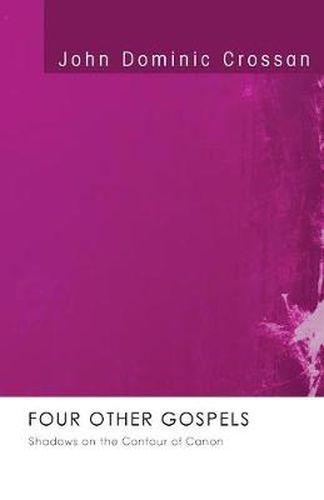Readings Newsletter
Become a Readings Member to make your shopping experience even easier.
Sign in or sign up for free!
You’re not far away from qualifying for FREE standard shipping within Australia
You’ve qualified for FREE standard shipping within Australia
The cart is loading…






This title is printed to order. This book may have been self-published. If so, we cannot guarantee the quality of the content. In the main most books will have gone through the editing process however some may not. We therefore suggest that you be aware of this before ordering this book. If in doubt check either the author or publisher’s details as we are unable to accept any returns unless they are faulty. Please contact us if you have any questions.
The four canonical gospels are long set in established sequence as Matthew, Mark, Luke, and John. This book is about four other gospels, the Gospel of Thomas, the Secret Gospel of Mark; the Gospel of Peter, and Egerton Papyrus 2. These four other gospels have generally been regarded as mere digests or collages of the canonical gospels, whereas in fact, as Professor Crossan persuasively shows, the four others hold within their mutilated fragments independent or earlier traditions than those tradition has canonized. Four Other Gospels proposes a spectrum of relations between the canonical gospels and these others. This spectrum ranges from the Gospel of Thomas, which is a parallel and independent tradition, to Egerton Papyrus 2, on which both John and Mark are dependent, to the Secret Gospel of Mark, on which Mark directly and John indirectly are dependent, and on to the Gospel of Peter, which contains an original Passion-Resurrection source used by all four of the canonical gospels, but which submitted to their eventual ascendancy by attempting a harmonization between it and them, and placed the new complex under the authority and authorship of Simon Peter. Four Other Gospels does not propose a new or alternative canon. The canon is a fact both of history and of theology. But the thesis of this book is that anyone who takes the four other gospels seriously and thoughtfully will never again be able to read the four canonical gospels in quite the same way. A new light has been shed.
$9.00 standard shipping within Australia
FREE standard shipping within Australia for orders over $100.00
Express & International shipping calculated at checkout
This title is printed to order. This book may have been self-published. If so, we cannot guarantee the quality of the content. In the main most books will have gone through the editing process however some may not. We therefore suggest that you be aware of this before ordering this book. If in doubt check either the author or publisher’s details as we are unable to accept any returns unless they are faulty. Please contact us if you have any questions.
The four canonical gospels are long set in established sequence as Matthew, Mark, Luke, and John. This book is about four other gospels, the Gospel of Thomas, the Secret Gospel of Mark; the Gospel of Peter, and Egerton Papyrus 2. These four other gospels have generally been regarded as mere digests or collages of the canonical gospels, whereas in fact, as Professor Crossan persuasively shows, the four others hold within their mutilated fragments independent or earlier traditions than those tradition has canonized. Four Other Gospels proposes a spectrum of relations between the canonical gospels and these others. This spectrum ranges from the Gospel of Thomas, which is a parallel and independent tradition, to Egerton Papyrus 2, on which both John and Mark are dependent, to the Secret Gospel of Mark, on which Mark directly and John indirectly are dependent, and on to the Gospel of Peter, which contains an original Passion-Resurrection source used by all four of the canonical gospels, but which submitted to their eventual ascendancy by attempting a harmonization between it and them, and placed the new complex under the authority and authorship of Simon Peter. Four Other Gospels does not propose a new or alternative canon. The canon is a fact both of history and of theology. But the thesis of this book is that anyone who takes the four other gospels seriously and thoughtfully will never again be able to read the four canonical gospels in quite the same way. A new light has been shed.